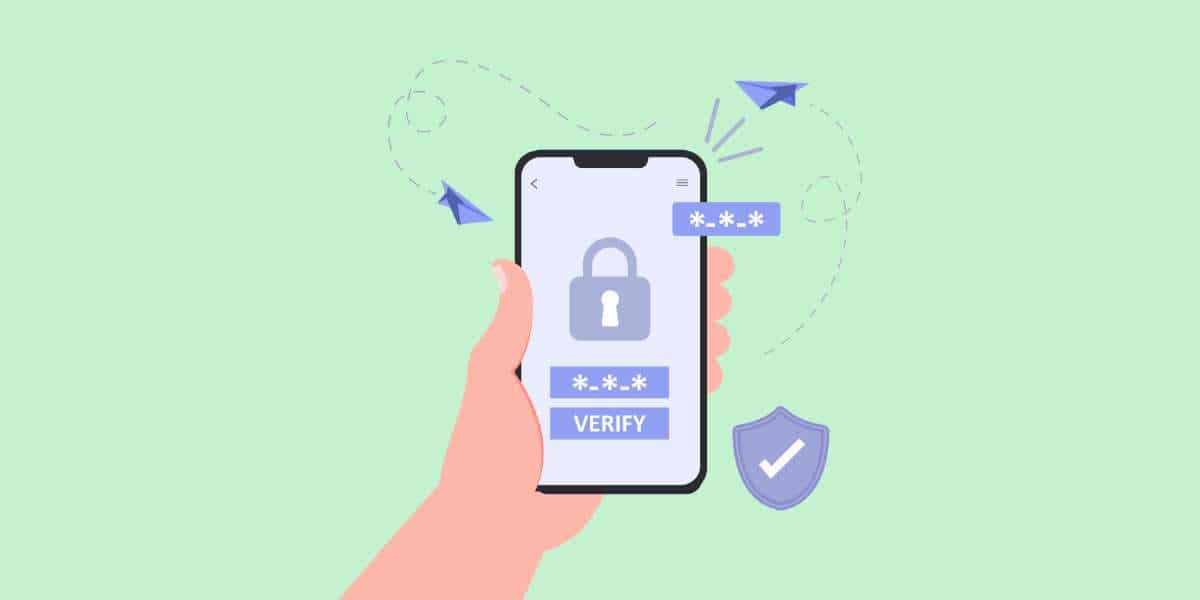
22 Sep Keeping Your Phone Secure
We use our phones for virtually everything, whether that’s social interaction, interacting with apps, or even business-related tasks. But while phones are convenient, they present a problem: security. Or specifically, lack of phone security.
Smartphones house treasure troves of personal data. Files, images, videos, and voice recordings all make up the mosaic of a phone’s memory. But it also contains apps, each with its login and connected data, like critical passwords. Where that information goes, how it’s stored, what other devices it “communicates” with, and what networks it accesses form a complex web of traveling data. Thus, there are two shades to the security dynamic: the information you can control directly on your phone, and where that information goes once it’s stored on an app (or similar).
There are several challenges involved with protecting your smartphone and personal data. One is that once your data is “sent,” your control is limited. Breaches or cybersecurity events related to third-party apps, for instance, are out of your control. What you allow to access your device, however, is something that can be monitored. Additionally, what you connect to and the kind of data you store on a device makes up a bulk of good phone protection.
It sounds overwhelming. In a sense, observing the entire picture certainly is. But good news! You don’t need a degree in cybersecurity or an IT expert’s understanding of data to protect your smartphone. Protecting your data and assets comes down to a lot of common sense, good habits, and extra scrutiny.
Basic Phone Security Tips
First, treat your phone like the device it is: a handheld computer. It sounds hyperbolic, but smartphones today possess a range of functions and performance capabilities that can rival inexpensive laptops. Therefore, treat it like the powerful, valuable device that it is. The capabilities a smartphone possesses work to your advantage, but also create the dangers inherent to it. With that in mind, we’ll start covering basic but essential phone security tips.
Update Everything
While typically an automatic feature, it’s very important to keep your apps and phone’s operating system updated. Unpatched systems can contain weak points threat actors want to exploit. Patches and updates ensure best performance and that any known security issues have been resolved.
If you’re running legacy apps (programs that no longer receive support or updates), consider retiring them or keeping them offline/disconnected.
Don’t Connect to Everything
Just like with laptops or other mobile computers, connecting to any available internet source is not a wise idea. First, you’ll want to make sure you are not set to automatically connect to an available network outside of your primary provider.
Not all networks are secure, and therefore, unchecked data crossing over them can expose your personal information. Just as you would with a laptop, connect only to networks you trust, or preferably those with a security key to access them.
Avoid Unsafe Links, Websites, and Domains
Sound familiar? Good personal security isn’t full of fancy tricks, it’s just quality habits. And that’s why the reliable strategy of avoidance still works. Just as you want to avoid dangerous areas in real life, you bring that same philosophy online.
These days, dangerous websites and bad links are normally marked on search engines. But that does not mean risk isn’t involved when doing any form of online browsing, downloading, or searching. So, before you download a new app or program, take an extra moment to verify its safety and integrity.
Consider Data Backups
We’ve covered the importance of data backups for mobile laptops and PC desktops. But they’re just as important for smartphones. Because smartphones carry critical data, information, and personal files, they’re a perfect target for hackers and threat actors. But, even if you’re not the target of a malicious attack, phones have eventual expirations. Whether that’s part failure, age, or even damage to the phone, there’s always a chance you will lose the data.
Backups for said data are, therefore, critically important.
Clean Out Apps
The importance of housing safe apps on your phone is important, and that means removing older, unused apps. It isn’t just for freeing up storage space on your mobile device. Older apps that no longer receive updates are a security risk, as they are not patched for potential exploits. Remember, if an app contains any important data, threat actors will seek it out. Therefore, older/unused apps are a prime target.
Know Your Phone’s Location
Sounds simple, but arguably one of the biggest risks to your phone security is losing it entirely. A lost device creates a cascade of issues, ranging from the cost of replacing a lost device to the serious risk it brings you. Furthermore, if you rely on your smartphone for 2FA, it becomes a massive headache to reset all the security protocols for any 2FA/MFA related account. The best solution, of course, is to know where your phone is and keep it in locations you can easily remember.
Some phones and providers even offer remote tracking/locking options in case you lose it. However, unless you’re insured, you may not get a replacement in the event of a lost phone.
Thinking Smart and Secure
In the end, good phone security comes down to healthy habits and playing it safe. Smartphones are invaluable, so keeping your device safe from loss, theft, and potential breach is of critical importance.
If you’d like better security tips for your phone or desire comprehensive data protection, consider getting help. For more information, contact Bytagig today.
Share this post:

Sorry, the comment form is closed at this time.